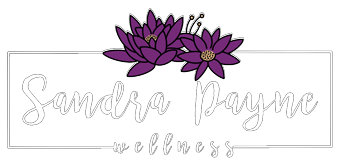The Road to Acceptance
When a Dream Dies
I have a strong belief that absolutely anything is possible and that we all live with a limitless potential to create a life that we desire. But sometimes the vision that we have does not play out exactly how we thought.
I wrote a couple weeks ago about resilience and how I had built my emotional strength over the last years. But what’s come to my attention lately is that some traumas break open wounds that have multiple layers, and even though I have built my emotional muscle there will be times when dusting myself off and getting back up again is more challenging.
Sometimes it seems that no matter how hard you work no matter what you do, you just can’t shake it and you just can’t let it go. I couldn’t understand why this particular experience had taken such a strong hold on me.
I think I equated the word grief with having lost something significant and I couldn’t see how losing a possibility, or feeling like a dream for your life was stolen, could create such emotional trauma.
But it can.
I acknowledge that writing about a situation without giving details can be frustrating for a reader but this, like many traumatic situations, involves other people, so I choose to leave out the details in an effort to sustain the positive work I have done.
The predominant feeling I experienced was anger which shifted between sadness and loneliness and then a bit of acceptance back to anger back to sadness and back to loneliness. It seemed like a vicious cycle I just couldn’t break.
Grief
The word grief had been coming up so frequently that I took a moment to think about what I had learned as a nurse about it. I recalled that it was a cycle where you moved between different emotions in a non-linear step by step process.
A quick Google search will give you Kuhbler Ross’s 5 stages of grief and loss as:
- Denial and isolation;
- Anger;
- Bargaining;
- Depression;
- Acceptance
It was like a huge lightbulb went off as I realized that was exactly what was going on with me. After even more reflection I realized I’d even participated in the bargaining stage by trying to come up with alternatives and different solutions to keeping my dream alive.
I’m not trying to compare the grief someone experiences when they lose someone they love to my experience but rather to paint a picture that grief can show up in the strangest places.
The Path to Acceptance
The path to acceptance in the face of this type of grief is forgiveness, gratitude, love and belief. Belief that I’ll be OK even though my dream may not look the way I envisioned. Forgiveness and love for everyone involved including myself. And Gratitude for my life and my family and everything that I have. The anger, the shame, the sadness, the depression and the loneliness can’t survive in the face of forgiveness, gratitude and love.
Steps to Take
With these answers in mind I am making a promise to myself to take the steps to truly find forgiveness, let go of my negative emotions, and to practice gratitude.
So I ask of you. Is grief showing up in your life? Is there an anger or another emotion you are struggling to let go of?
If so I encourage you to try these steps along with me and see what happens.
- First of all I’ve learned forgiveness isn’t excusing someone who has wronged you or even forgetting about the incident. The relationship may need some work to move forward after forgiveness or you may choose to not have that person in your life. Either way it’s not about the other person. Forgiveness is for YOU to remove the heavy negative emotional burden from your life after you have fully identified and felt the hurt and expressed and released your feelings and this requires a willingness to process and let go of trauma. When we don’t release our negative emotions they remain trapped and can begin to express themselves as physical, mental and emotional ailments. So give yourself permission to feel everything you are feeling.
- Write a letter in your journal and acknowledge fully the situation. Be honest about your feelings and how the situation has impacted you and your life. Accept your involvement, your mistakes, any hurt you have inflicted as well as your growth from the experience. Allow yourself to be unedited and fully expressed in this letter. Remembering no one has to see this except you.
- Reread the journal letter. Try to step outside of the memory and see a new perspective of the situation, yourself, and the others involved. Try to find compassion and understanding.
- Practice stress management during moments of anger and resentment. An aroma reset can be a helpful technique.
- Don’t go to sleep angry. Every night make a gratitude for at least 10 things you are grateful for. Reframing your life in a positive view is the best way to fall asleep and feel more joyful the next day.
- Look for other ways to build positivity and joy into your life rather than persistently focusing on the negative. Look for love beauty and kindness and refuse to let the negative swallow you up.
- Decide if the relationship needs some work. This may mean you have to follow Brene Browns advice and Rumble through some vulnerability. Meaning you may have to show up and lean into an uncomfortable unpleasant situation. To truly let go may mean you need to find closure on the situation or the relationship itself. Look for mediation or a relationship counselor if you feel the situation requires it.
- Practice emotional release techniques. We can stuff our anger, sadness and fears deep down for a long time but eventually the energy they hold will start to manifest in different ways. There are a variety of energy therapies or emotional release modalities available to you. My choice is Aroma Freedom Technique. To learn more or to schedule your own session click here. Schedule
- Lastly find forgiveness for yourself. Accept that as a human you will make mistakes. Owning our errors and holding yourself accountable is important and then offering yourself grace, love and forgiveness is essential to denying the hold the negative emotions may have over you.
- Reach out for support. You’re never alone in this world and there a whole list of people who are here to support you and guide you through. Isolating yourself and feeling alone is a symptom. Getting support is a big part of the solution.











